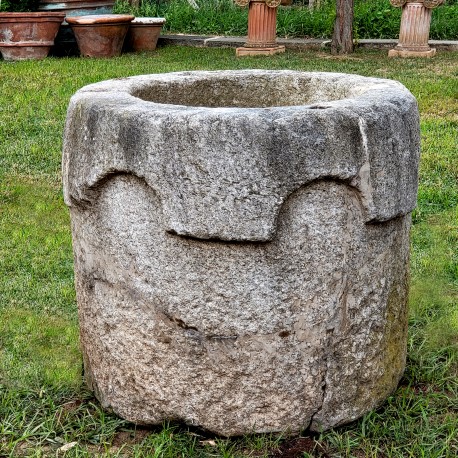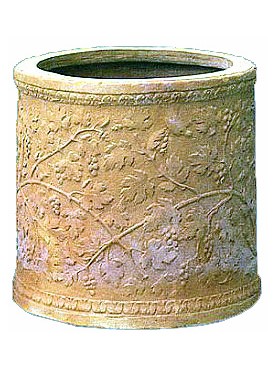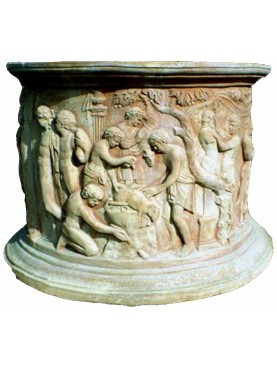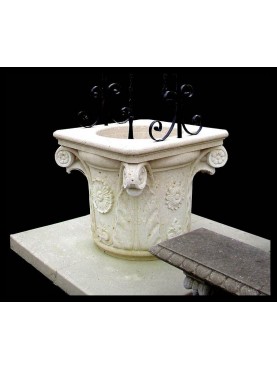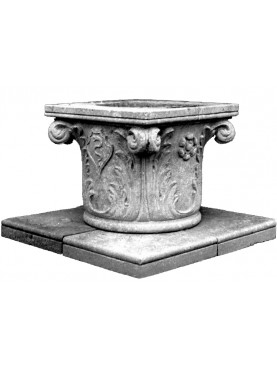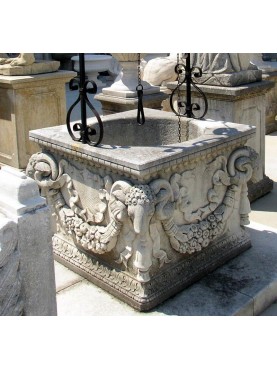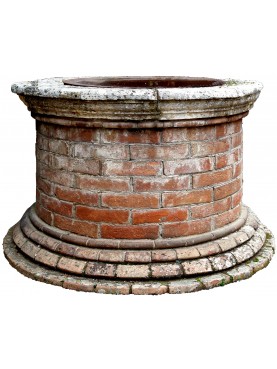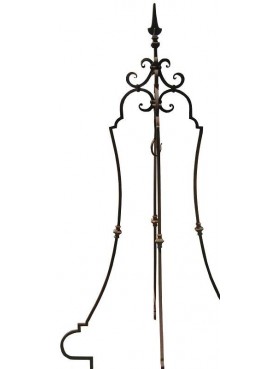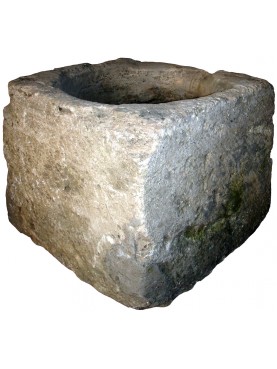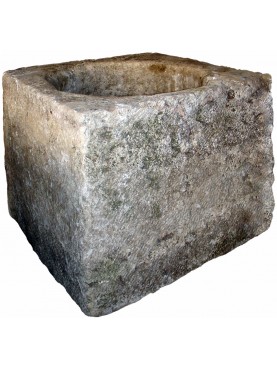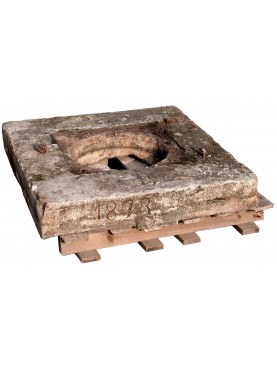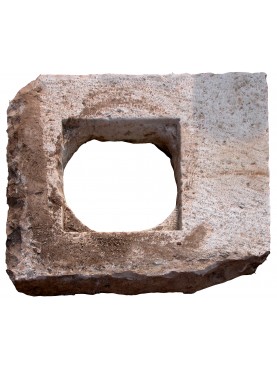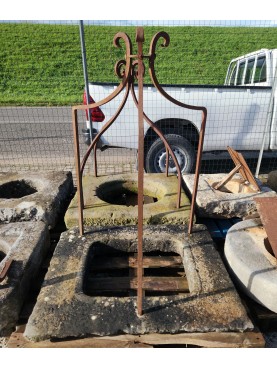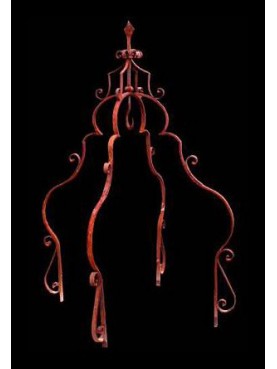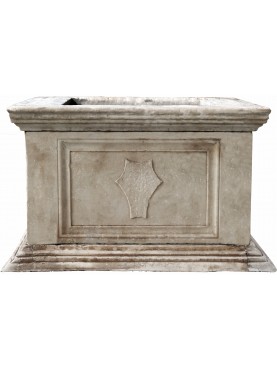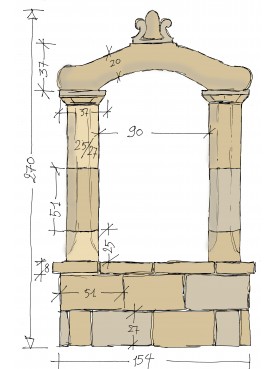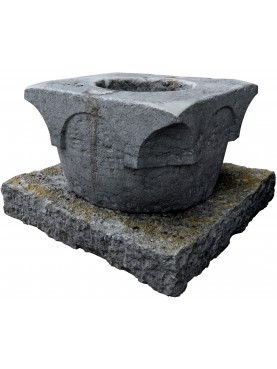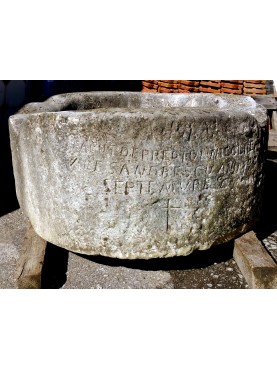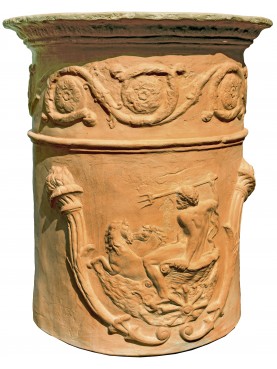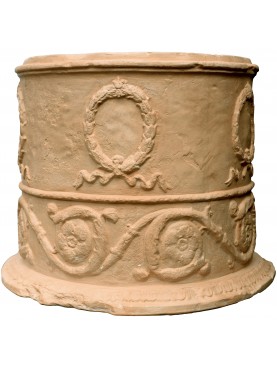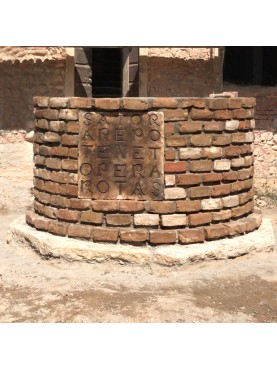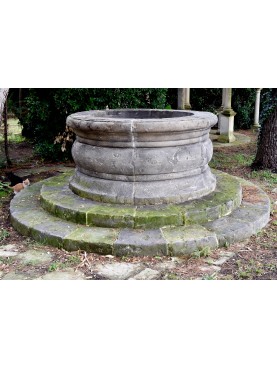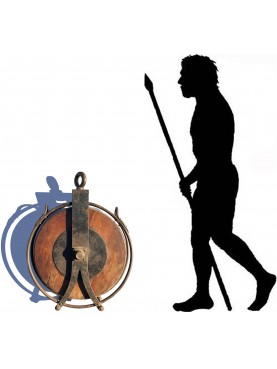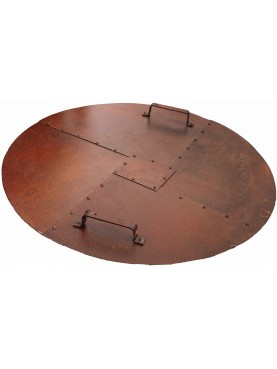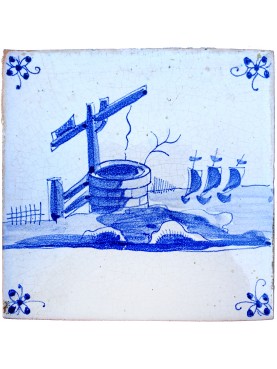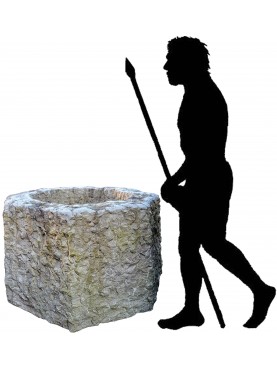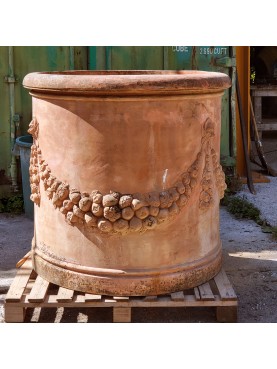ancient Stone artifact similar to a well but in fact it can be classified as an ancient icebox
ancient Stone artifact similar to a well but in fact it can be classified as an ancient icebox
14614
Original
Original ancient stone artefact from Northern Italy "Beola". It appears to be a well but in fact the bottom of the artifact is not drilled, so it cannot be a real well. Its use can be traced back to its use as a domestic "GLACIER". The holes drilled on the upper edge housed a lid with a door. Unusual, beautiful.

1 Available
Warning: Last item in stock!
Data sheet
| Height | 31.5 in | 80 cm |
| Depth | 23.62 in | 60 cm |
| Thickness | 4.72 in | 12 cm |
| Weight | 2645.54 lbs | 1200 Kg |
| Round base diameter Ø | 29.53 in | 75 cm |
| Maximum Circumference | 109.06 in | 277 cm |
| External mouth diameter | 32.28 in | 82 cm |
| internal diameter of the mouth | 22.44 in | 57 cm |
| Maximum diameter | 34.65 in | 88 cm |
| Material | Gneiss of the Alps |
More info
News on the GLACIER:
The first historical trace of the use of an icebox is from the times of the ancient Sumerians, described in the Tablet of Zimri-Lim, king of Mari, concerning the construction of an icebox in Terqa in 1780 BC. approximately. In ancient times up to the modern era the use of ice was however a luxury use, mostly to cool the drinks of the lords. In the wealthiest Roman baths it was used in the frigidarium. Nathaniel Jarvis Wyeth patented a horse-drawn ice plow in 1825 which made mining in U.S. lakes easier and cheaper and gave a further boost to the global ice export industry which declined after 1930. with the advent of the mechanical domestic refrigerator. The first domestic refrigerators of the 1800s, in fact, were actually cabinets with insulating cavity that were regularly filled with a block of ice from iceboxes. Thanks to the mechanization and competition of the market, the cost of commercial ice dropped and it became accessible even to the less affluent sections of society. In a sense, the mass spread and success of the first ice refrigerator (icebox) gave impetus to the invention of the mechanical refrigerator.
Source: Wikipedia

